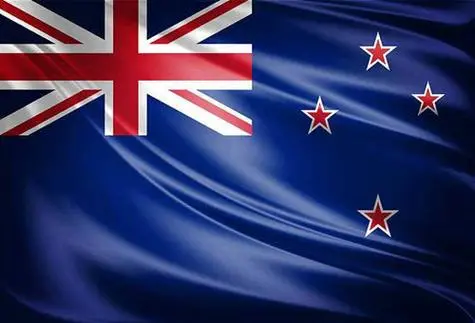Overview of New Zealand

New Zealand is located in the South Pacific, consisting of the South Island and the North Island, with a land area of approximately 268600 square kilometers. New Zealand's geographical features include its unique location, far from other continents, abundant natural resources, and beautiful natural landscapes. The official languages of New Zealand are English and Maori, with the main ethnic groups being European descendants and Maori.
The climate of New Zealand belongs to the temperate maritime climate, with little temperature difference throughout the four seasons. The average temperature in summer is about 25 ℃, and the average temperature in winter is about 10 ℃. This climate condition makes New Zealand a suitable destination for year-round tourism.
The political system of New Zealand is a parliamentary constitutional monarchy, with the King of England as its nominal head of state, the Governor appointed by the Queen, and the Prime Minister and Cabinet holding national power. New Zealand has a highly developed economy and is one of the most convenient countries for doing business in the world. Its main export commodities include dairy products, meat products, etc.
New Zealand is a developed country with a high degree of marketization and legalization of the economy, transparent and efficient government management, political stability, and social security. New Zealand's economy is dominated by agriculture and animal husbandry, with agricultural and animal husbandry products accounting for over 50% of its total exports. Among them, lamb and dairy products rank first in the world in terms of export volume, and wool ranks third in the world in terms of export volume. Although agriculture and animal husbandry are the main industries, New Zealand's industrial structure has undergone significant changes, with the service industry becoming the main sector for employment, accounting for over 70% of the workforce.
The economy of New Zealand has undergone significant changes in recent times. The inflation rate in the third quarter fell to its lowest point since the beginning of 2021, at 2.2%, indicating that the Reserve Bank of New Zealand has been successful in adjusting its monetary policy. In addition, the New Zealand Ministry of Finance believes that the economy is "at or near" the bottom of the cycle, and although the economy contracted in the second quarter, the easing of inflation and the decline in interest rates indicate that economic activity may remain stable.
New Zealand's natural resources and investment environment are also attractive. The country has abundant natural resources, including gold, silver, iron ore, coal, and natural gas, and its resource development strategy mainly meets domestic demand, which helps to maintain the sustainable use of resources. New Zealand's financial and communication industries, as well as its favorable business environment, have made it a popular destination for global investors and entrepreneurs. The high-quality living environment and comprehensive social welfare system have also attracted a large number of foreign investors.
In summary, New Zealand's economic profile includes its developed economic system, dominant position in agriculture and animal husbandry, rapid development of the service industry, significant decrease in inflation rate, and cyclical changes in the economy.

